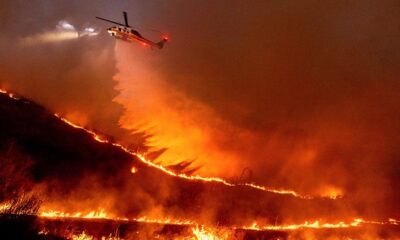All the other parents I told about my plan for “dead week” reacted in the same way. “What a great idea! I wish I had thought of that! Why not?”
“Dead week” in Juneau is the week before school starts, when there are no camps /,and the district-sponsored after-school and summer program takes a break to prepare for the school year. For working parents, it means a week with no child care. Most of these options cost around $200 per week. I realized that for $299, I could take my first-grader on an Alaska cruise.
I’d never been on a cruise and, as someone who has lived in Juneau through the cruise industry’s explosive growth, I have mixed feelings about it. I’m also a journalist, who until recently led a local news department. We made a whole podcast about the cruise industry’s impact on life in Juneau — for better and for worse. It contributes to our local economy through jobs and tax revenue, but we also sacrifice so much to accommodate more than a million visitors a year. They bring crowds, traffic, pollution, trash and sometimes disrespectful attitudes and bad behavior.
So, not only was $299 a screaming deal for dead week, it seemed important to me to experience an Alaska cruise in order to see what all the fuss was about. And I’m telling you this so that you know that I opened my heart a tiny bit for cruise ship visitors and how they experience the place where I live. I also want to tell you right now that I got burned.
I booked last minute and the total came out to more like $500 with taxes and those port fees and head taxes we know all about in Juneau. But I was thinking about everything my kid would experience. There would be running up and down long hallways and taking glass elevators endlessly between decks, bottomless baskets of french fries and 24-hour access to self-serve soft serve ice cream cones. Pools, hot tubs, shuffleboard, ping pong, and movies on a giant outdoor screen. There would be a cozy bunk bed with fresh linens every day in a warm, dark below-deck cabin with a built in sound machine as the engines purred us across the Gulf of Alaska.
We flew on a mileage ticket to Anchorage. We woke up early and took the train to lovely Seward. We boarded the ship early in the afternoon and had already hot tubbed and hit the buffet twice before we shoved off.
I taught my 5-year-old how to read the word “complimentary,” and we managed to cruise all the way back to Juneau without incurring any additional expenses. We got to see the Hubbard Glacier. At Icy Strait Point, we ate thimbleberries and found starfish at low tide. In Skagway, we visited sites managed by the National Park Service and panned for gold in the backyard of a local rock shop.
We slept in when the ship docked in Juneau. We enjoyed a pancake breakfast with a totally new view of our hometown, 12 stories above the water. Our friends on Douglas Island texted us a photo of our ship and said they were waving to us from their balcony. And then we walked off the ship to head home.
“Why do you want to end your trip early?” the guest services manager asked me when I told her we were disembarking.
“Because I live here!” I said proudly. “My kid’s first day of first grade is tomorrow and my husband is parked outside waiting to pick us up. “
She asked me this before she told me that the minute we got off the ship, I would be fined $941 per person (there is no child price) for violating the Passenger Vessel Services Act of 1886, or PVSA.
The PVSA says simply that a foreign-flagged ship cannot transport people between two U.S. ports. That privilege is reserved for “U.S.- built, owned, and documented vessels.” Its original purpose was to protect the American ship-building and shipping industries. It’s why we have Alaska-built ferries that take people between Alaska ports, abiding by U.S. labor and safety laws.
Even though many of the cruise lines are based in the U.S., the ships sail under “flags of convenience” – they’re registered in other countries so they can operate under the laxest labor laws and most advantageous tax schemes they can find. The way they get around the PVSA is by stopping in Canada.
I was stunned. Because I know about the PVSA. I helped report on the ins and outs of the law during the pandemic when Alaska’s delegation spurred Congress to waive the requirement that cruise ships stop in Canada when Canada’s ports were closed to keep the virus out.
I just didn’t know it applied to me. And technically, it doesn’t apply to me. The cruise line actually violated the PVSA by transporting me and my son from Seward to Juneau on a foreign-flagged ship. But it decided to pass the fine onto me by instantly charging the credit card I had on file.
We were escorted off the ship by a port agent, who shook his head at the sight of us. ”The self-inflicted wounds hurt the most, don’t they?” he said. “Tell your husband he can pick you up at the Customs and Border Control office in about 30 minutes.”
I felt like a criminal. We jumped ship and were now in a category with stowaways. We were in a building where the officers had guns and the signs were in many different languages — the same place undocumented people find themselves before they are whisked away to an Immigration and Customs Enforcement detention center.
They gave my kid a sticker while I filled out forms. The customs agent was someone we know — a relative of my son’s best friend. She’s someone we’ve spent Christmas with. Her eyes were soft and apologetic as she processed our paperwork.
“Is there any way out of this?” I asked her as the heft of the fine settled deep into the bottom of my stomach.
She told me there are exceptions for family emergencies. If we got to port and found out that my husband had died or was in the hospital, they might waive the fine for the ship. But in my case, the damage was already done. The cruise line had already decided my fate. She told me that sometimes the cruise companies will even charge people who have medical emergencies and have to take a medical airlift out of Juneau.
Everyone wants to know: “How was the cruise?” And what can I say? The cruise was great. My kid had the time of his life. We met lovely people. We saw beautiful parts of the state we’d never been to and probably wouldn’t get to see any other way. But I paid a huge price for experiencing Alaska this way. Cruise companies are exploiting legal loopholes left and right, and I’m the one who paid almost $2,000 in federal fines?
Sen. Lisa Murkowski has proposed a permanent exemption from the PVSA for Alaska cruises. While this might prevent people like me from getting fined in the future, it will do nothing to address how cruise lines operate in Alaska with impunity.
It’s pretty clear that Alaska cruises are not for Alaskans. None of what I paid is going to go back into my community and make it a better place to raise my kid. Next year during dead week, I’m going to take some time off and stay home. I’ll take my son berry picking. We’ll go hiking and tidepooling, and we’ll celebrate the end of summer by eating something we catch. I’ll even let him eat as much ice cream as he wants — as long as it’s from a locally owned shop.
Jennifer Pemberton is a writer who lives in Juneau. She previously headed up the local and statewide newsroom at KTOO Public Media and produced the “Midnight Oil” and “Cruise Town” podcasts.
The views expressed here are the writer’s and are not necessarily endorsed by the Anchorage Daily News, which welcomes a broad range of viewpoints. To submit a piece for consideration, email commentary(at)adn.com. Send submissions shorter than 200 words to letters@adn.com or click here to submit via any web browser. Read our full guidelines for letters and commentaries here.

:quality(70)/cloudfront-us-east-1.images.arcpublishing.com/adn/2N4MMFO6JBCWUB4EWKPHR5AZZ4.jpg)



















/cdn.vox-cdn.com/uploads/chorus_asset/file/25822586/STK169_ZUCKERBERG_MAGA_STKS491_CVIRGINIA_A.jpg)

/cdn.vox-cdn.com/uploads/chorus_asset/file/25821992/videoframe_720397.png)



